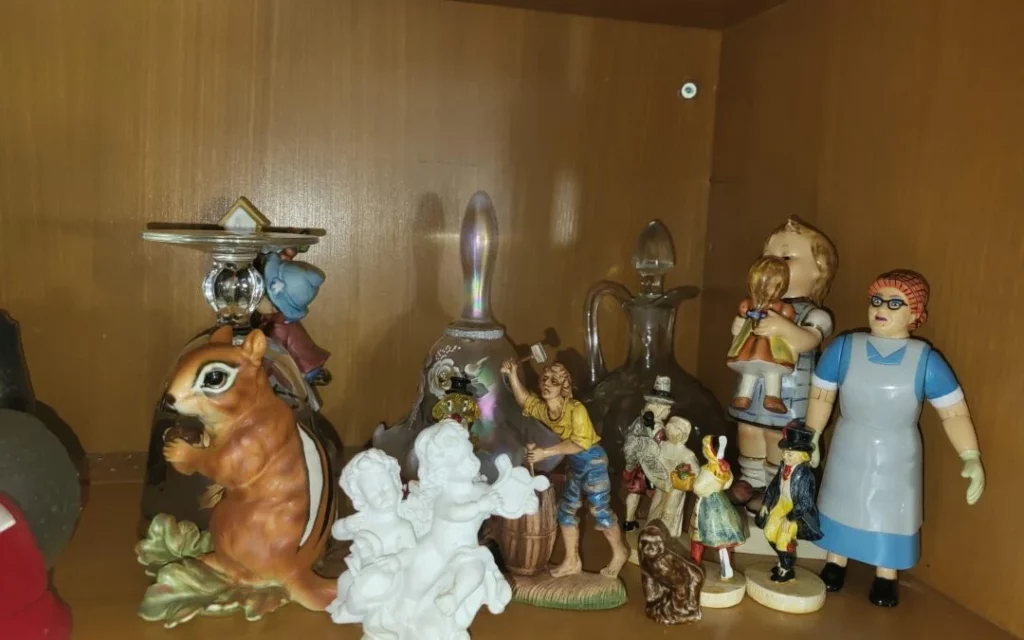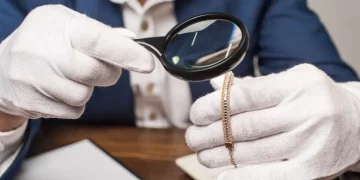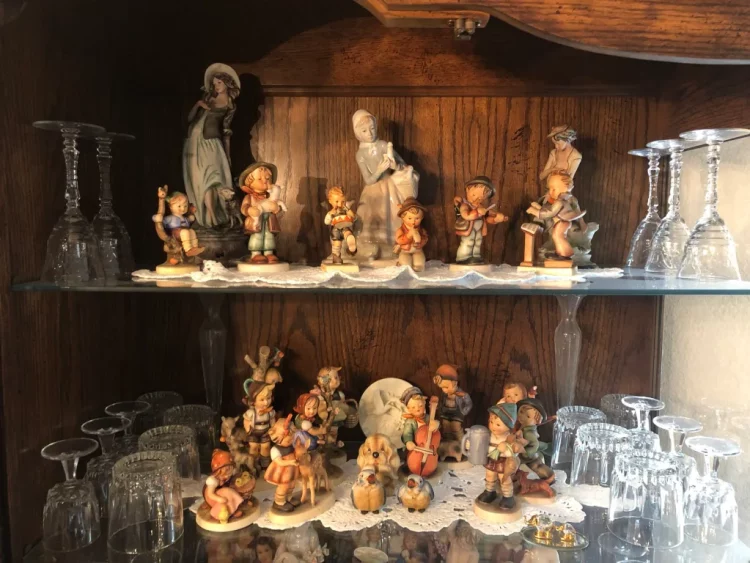Collecting is not only an art form and passion—it’s often a business. For savvy collectors, securing rare, valuable items at a fraction of their worth is a key to building a collection that can offer both aesthetic enjoyment and financial gain. However, there’s an aspect of collecting that can seem unsettling, though it holds significant appeal for bargain hunters: acquiring items from the estates of the deceased.
When someone passes away, their estate—containing everything from valuable artwork to collectibles, vintage items, and even sentimental memorabilia—often ends up being sold off through auctions, estate sales, or private collections. For collectors looking to expand their holdings without paying premium prices, these sales can represent a golden opportunity. However, these opportunities are not without their ethical, emotional, and practical considerations. In this article, we’ll explore how the timing of an estate sale can affect the availability and cost of collectible items, while also discussing the ethics of purchasing from the estates of the deceased.
The Estate Sale: A Hidden Goldmine
Estate sales are one of the most common ways in which collectible items from deceased collectors find their way onto the market. An estate sale can happen in a variety of circumstances: after a person passes away, a family decides to liquidate an estate, or when someone moves into an assisted living facility or downsizes. For collectors, these sales often provide the opportunity to purchase rare items at significantly reduced prices—often because the seller is looking to liquidate assets quickly, and there is no emotional attachment to the items.
What makes estate sales particularly intriguing for bargain hunters is that they often involve unique, one-of-a-kind items, many of which are not available through traditional retail or auction venues. Items like antique furniture, rare books, vintage toys, collectible artwork, and memorabilia can be found at estate sales, often without the inflated prices seen in specialized markets.
However, the value of an estate sale is not simply in the items themselves—it is also about the timing. Timing can affect both the types of items available and the pricing. The longer an estate sale has been running, the more likely it is that items may be discounted in order to clear out the remaining stock. For collectors, this can mean a potential for bargain finds, but it also comes with a set of risks and challenges.
The Timing of Estate Sales: How to Maximize Opportunities
The timing of an estate sale can significantly impact the opportunities available to collectors. There are several factors to consider when determining the best time to attend an estate sale in order to maximize your chances of finding valuable collectibles at a bargain price.
- First Day vs. Final Days: The first day of an estate sale is typically when the best and most valuable items are priced at their highest. However, this is also when most collectors and resellers will flock to the sale, creating fierce competition. Prices may be less negotiable, and the rarest items may be snatched up quickly. For collectors who are looking for specific high-value items, arriving on the first day may be essential. On the other hand, the final days of an estate sale can offer significant bargains. Sellers may drop prices to move remaining items, making the last days of a sale an excellent opportunity to purchase collectibles at a steep discount. However, the selection of items may be much smaller at this point.
- The Estate Liquidation Process: Understanding the liquidation process can also give collectors an edge. Estate sales are sometimes organized by professionals who handle the sale of assets on behalf of the deceased’s family. In many cases, these professionals may have an understanding of the value of the items in the estate and will price them accordingly. Estate liquidators may also offer discounts or offer deals if there is a need to quickly clear the home. The timing of the liquidation is critical: if the family is eager to sell quickly, there may be more room for negotiation. Additionally, if the family is less knowledgeable about the value of certain items, they may undervalue them, allowing for greater opportunities for bargain hunters.
- Seasonality and Market Trends: The season in which an estate sale is held can also affect the types of items on offer and the prices they fetch. For example, estate sales held during the winter months might feature fewer visitors, potentially allowing you to score a better deal on collectibles. Additionally, certain types of collectibles may be more in-demand during specific times of the year. For instance, vintage toys and holiday-themed collectibles may be more valuable leading up to major holidays, while antique furniture might see a price surge during the summer months when people are more likely to renovate their homes.
- Estate Auctions vs. Estate Sales: Estate auctions, especially those that feature rare or highly sought-after items, can be lucrative for collectors. However, these auctions often involve competitive bidding, which can drive up the price significantly. Some bargain hunters may be able to find better deals at estate sales, where prices are typically fixed and more negotiable. Auctions, on the other hand, can offer a greater variety of items in a single sale, and some estate auctions feature high-value items that are otherwise inaccessible.

The Ethical Considerations of Collecting from the Deceased
While the prospect of acquiring rare items from the estates of the deceased is an exciting and profitable venture, it also raises important ethical questions. Collectors must weigh their desire for a bargain against the emotional and personal aspects of the estate process. Here are some ethical considerations to keep in mind:
- Emotional Sensitivity: Purchasing from an estate can be seen as a delicate issue. Many collectors may feel uncomfortable with the idea of buying an item that once belonged to someone else, especially if it was an item of sentimental or personal value. The family members involved in the sale may have emotional attachments to the items being sold, and it is essential for collectors to approach these situations with respect and understanding. Some collectors may choose to avoid items that they perceive as too personal, while others may feel compelled to preserve the legacy of the deceased by treating their possessions with care.
- Fair Pricing and Negotiation: One of the main ethical concerns surrounding estate sales is the issue of pricing. Many bargain hunters are keen to haggle and negotiate prices in order to secure the best deal. While negotiation is a standard practice, it’s essential to recognize that the family or estate may be in a vulnerable position and that they may be relying on the proceeds from the sale to settle debts or distribute assets. In cases where items are being sold for less than their market value, collectors should consider the fairness of their offer and weigh the financial needs of the estate against the value of the items.
- Transparency and Integrity: Some collectors may encounter opportunities to purchase rare items from estates without full transparency regarding their authenticity or provenance. Collectors should ensure that they are not participating in dishonest transactions. For example, ensuring that a piece of artwork or an antique item is genuinely authentic and not a forgery is vital for ethical collectors. Additionally, collectors should avoid exploiting the situation by taking advantage of family members who may not have expertise in valuing certain items.
- The Dangers of Speculation: It is essential to remember that some of the items in an estate sale may hold sentimental value to the family, and simply acquiring these items to flip them for a quick profit may be seen as disrespectful. While this practice is common in the industry, ethical collectors must always consider the human side of the transaction. Speculation, especially when it involves rare family heirlooms or personal items, can be controversial. It’s important to approach the estate sale with respect, offering fair prices for valuable items and avoiding the impulse to take advantage of situations where the emotional distress of the family members is evident.
Conclusion: Navigating the Morality of Estate Sales
The world of estate sales presents an intriguing mix of opportunity and complexity. For collectors, these sales offer the chance to acquire rare and valuable items at bargain prices, but they also present ethical challenges. Understanding the timing of estate sales and considering the emotional and personal aspects of acquiring deceased individuals’ belongings is crucial for anyone involved in the process.
By adopting an ethical approach to estate sales, bargain hunters can build their collections without compromising their integrity. The key is to balance the thrill of finding hidden treasures with the respect and sensitivity owed to the legacy of the deceased and their family. Estate sales can be an exciting and profitable avenue for collectors—but they should always be approached with careful thought, fairness, and the understanding that behind every collectible, there is a story.

















































